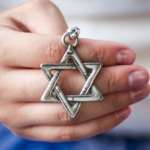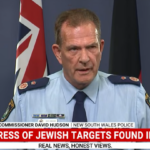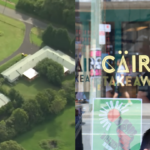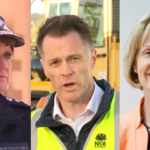Liberties Council Has the NSW Public’s Back on the Antisemitism Law-and-Order Smokescreen

The NSW Council for Civil Liberties has raised its concerns that antisemitism has been and continues to be weaponised by politicians and the media alike, via “the incorrect and harmful conflation of Zionism and Judaism”.
Zionism, the NSWCCL confirms, is a “modern political movement to establish a Jewish homeland in Israel”, whilst “Judaism is a religion and an ethnicity”.
These concepts are fairly basic, especially when an authority, like the NSW council, outlines them, and it goes on to explain in its recent submission on Antisemitism in NSW that this conflation is being propagated in order to block criticism of Israel, a nation subject to an International Court of Justice inquiry over its plausible commission of genocide, via the claim that it equates to antisemitism.
The April 2025 NSWCCL submission is to the NSW Parliamentary Justice and Communities Committee inquiry into Antisemitism in NSW, which was launched on 12 February with the aim of assessing “the increasing prevalence and severity of antisemitic incidents”, “record levels of antisemitism on university campuses and in schools” and the “threat to social cohesion” antisemitism poses.
The Minns government launched this inquiry following a monthslong spate of so-called “antisemitic” crimes, of which NSW police deputy commissioner David Hudson had expressed his doubts around the true motivations behind the crimes on 30 January, which was weeks prior to the AFP then confirming that the crimes had been staged by organised crime to convey an antisemitic crimewave.
So, while the NSW parliamentary antisemitism inquiry report to be released in September seems a tad superfluous now, as it will be providing recommendations on how to enhance public security in terms of a fake terror plot, the NSWCCL submission to it does go a long way in explaining what has actually transpired over this time, especially with the imposition of unnecessary draconian laws.
Legislating a political headache away
“NSWCCL is sceptical of claims that there is genuine and widespread increase in antisemitic sentiment in the Australian community,” writes NSWCCL secretary Adam Connor, as he echoed the thoughts of much of the constituency that, despite the spate of staged crimes over last summer, continued to doubt that this state was under the grips of widespread antisemitism.
“Even if this is wrong, the correct response is to promote dialogue in the community,” the law student continued on in the submission. “Efforts made by the government at dealing with antisemitism over the summer should properly be directed at criminal organisations, rather than at genuine political communication.”
This was not the approach taken by the Minns government, however, as NSW Labor instead passed the Crimes Legislation Amendment (Racial and Religious Hatred) Bill 2025, the Crimes Amendment (Places of Worship) Bill 2025, and the last-minute addition of the Crimes Amendment (Inciting Racial Hatred) Bill 2025 over the 20 and 21 February.
NSW attorney general Michael Daley confirmed in introducing the last bill that it was “the third government bill this session that responds to the recent instances of antisemitic behaviour that we have seen” on Gadigal land in Sydney. And a second inquiry is now underway to ascertain whether the NSW government knew the crimes were likely fabricated when passing the package of laws.
“The NSWCCL argues that more laws are not needed to protect against antisemitism and other forms of racism,” Connor underscored.
“There’s already a plethora of state and federal laws that prevent vilification and discrimination, and deal with criminal conduct arising out of the public using violence – especially if violence is being used to further a political ideology.”
Superfluous to say the least
Section 93Z of the Crimes Act 1900 (NSW) contains the offence of publicly threatening or inciting violence on grounds of race, religion, sexual orientation, gender identity or intersex or HIV/AIDS status. This thoroughly comprehensive 2018 established offence replaced four serious vilification offences, and it already criminalises open racial and religious prejudice and the incitement of hatred.
The NSWCCL considers the 93Z offence adequately covers discriminatory vilification, and this is a valid curtailing of the rights of free speech and political expression, as it protects the rights of civilians to live free from the threat of violence, at the same time as creating an adequately high bar when restricting speech or protest. And the offence carries a maximum of three years imprisonment.
A report on the 93Z offence commissioned by AG Daley, led to former NSW Chief Justice Tom Bathurst reporting in November as to the adequacy of the 93Z law as it stood. Yet, the NSW premier passed the last-minute addition of the new offence of publicly inciting hatred on grounds of race, which lowers the bar in terms of breaching the law and created an exemption for those of faith.
The other bizarre addition the Minns’ questionable law-and-order legislating jamboree involved the passing of a bill to prevent citizens and residents protesting near places of worship without seeking prior authority, and it further empowered NSW police to move civilians on from being near a place of worship, like a church, which can be used as a means to shut down a public protest.
“Placing restrictions on legitimate public speech risks substantially altering the fabric of our democracy and would likely disproportionately impact minority groups,” said Connor, adding that there had been “no reasonable basis to prohibit protests outside places of worship or to link them to antisemitism”.
Post-truth politicking
After revelations started circulating around the fact that the NSW premier might have been privy to the doubts about the legitimacy of the so-called antisemitic crimewave prior to the passing of his law-and-order package, Minns has refuted claims that the unnecessary laws should be revoked, as he’s repeatedly asserted that they are necessary and will remain on the books.
Minns and Liberal leader Mark Speakman have both insisted NSW is still in the grips of a wave of antisemitism. Yet, after police minister Yasmin Catley insisted in March that there had been 700 reported antisemitic incidents over July 2023 to January 2025, it came to light at the inquiry that only 41 percent were antisemitic incidents, 15 percent were Islamophobic, while the rest were “other”.
The NSWCCL further asserts that the definition of antisemitism that has recently been adopted by Universities Australia be dropped as it equates certain criticism of Israel as being antisemitic, and this includes “advocating for a single, democratic state in Israel-Palestine in which Palestinians and Israelis have the same rights”.
The 1963-established NSWCCL, which is an organisation of lawyers and legal minds who voluntarily advocate for the upholding of the rights and freedoms of all civilians in this state, further calls for all the antisemitism-linked legislation passed in February in response to a “criminal con job” be revoked.
“The NSW Council for Civil Liberties reaffirms its strong commitment to addressing antisemitism as part of a broader effort to combat all forms of racism and discrimination,” said Connor in concluding.
“However, this must be approached with an evidence-based perspective and not based on kneejerk fearmongering politics.”







